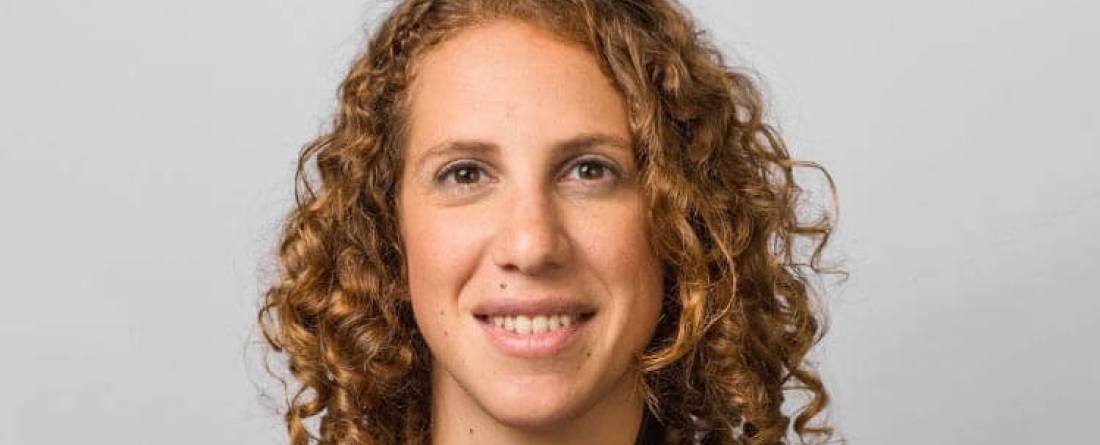
While pursuing a PhD at the UMD School of Public Policy, students have the opportunity to hone in on their research, present their findings at prestigious conferences and collaborate with faculty and fellow students for a well-rounded experience.
Cynthia Boruchowicz, a PhD student at SPP, is focusing her research on the causes of labor informality, specifically unregistered salaried workers who do not contribute to the pension scheme. “I deal with labor informality from the side of the worker, trying to understand if there are structural characteristics of the labor market (regulations, welfare programs in place, taxes) that incentivize workers to get “off the book” jobs,” she says.
“I enjoy my work at SPP, both as a TA of International Economic Policy and as an RA for Professor Swagel, my advisor. In particular, my work with him has been spent analyzing current tax and spending policies in the United States, focusing on possible incentives for labor supply, and then thinking about potential policy changes that can be implemented to promote greater equality and improved earnings for those at the bottom,” Boruchowicz says. “The outcome of this research was a paper titled “Policies to Address Income Inequality and Increase Economic Opportunities at the Bottom of the Distribution,” which I co-authored with Professor Swagel. The paper was published through the Mercatus Center at George Mason University.”
After finishing my PhD, I want to be a policymaker, and be able to combine rigorous and substantial original research with having an active role advising the design, implementation and evaluation of developmental projects on social and labor policy.Cynthia Boruchowicz SPP Student
She adds, “Being able to co-author such a paper so early in my PhD studies incentivized me to start thinking about my own research and how better-designed policies with improved work incentives can provide appropriate support for families most in need of assistance.”
In addition to being able to publish research papers with faculty, Boruchowicz was also able to complete an internship with an NGO in Nepal, the Advocacy Project, after receiving internship funding from SPP. The organization’s main objective is to rescue children from illegal work in brick kilns and send them back to school. “I got that internship through SPP’s career services,” she says. “It was a very important experience for me at this stage of the program, as it allowed me to gain practical tools that compliment my theoretical knowledge. My studies had given me theoretical tools, but many times the assumptions that we make on theoretical models do not hold, and therefore policies that look good on paper might not work in real life.”
During her time at SPP, Boruchowicz has also presented her research at the Institute for Human Studies Fall Graduate Research Colloquium and the Association for Public Policy Analysis and Management (APPAM) 2017 Fall Research Conference. She says, “After finishing my PhD, I want to be a policymaker, and be able to combine rigorous and substantial original research with having an active role advising the design, implementation and evaluation of developmental projects on social and labor policy.”
Another PhD student, Jing Liang, is focusing her research on energy efficiency, energy economics and energy policy. “I’m specifically focusing on energy efficiency in residential and commercial buildings in the United States, consumers’ attitudes toward pricing and how electricity pricing impacts consumers’ energy-related behavior,” she says.
Since beginning her studies at SPP, Liang has also had the opportunity to present her research. “Recently I went to two conferences, APPAM and the United States Association for Energy Economic Conference,” she says. “The study I presented at APPAM was about consumers’ attitudes toward surcharges on energy efficiency and solar panel adoption. The purpose of this study was to investigate consumers’ preference toward two surcharges. At the second conference, the study I presented was about the engineering, behavioral and organizational reasons for the energy performance gap in green commercial buildings, especially LEED and Energy Star buildings.”
The support from fellow students and faculty members is what helps set SPP apart from other PhD programs, Boruchowicz says. “I think the main benefit of SPP is its people – that involves faculty, staff and students,” she says. “My PhD classmates have been a main source of support during my time here – we consult with each other regarding our research, we provide feedback to each other and we organize ourselves to function as a cohesive group. I think that will shape my future career, not only because I know I will encounter many of them in my work life, but also because it has shown me the importance of working in a collaborative way. Even at this stage, when all of us are working on our own research agenda, we still find the time and the energy to help each other.”
